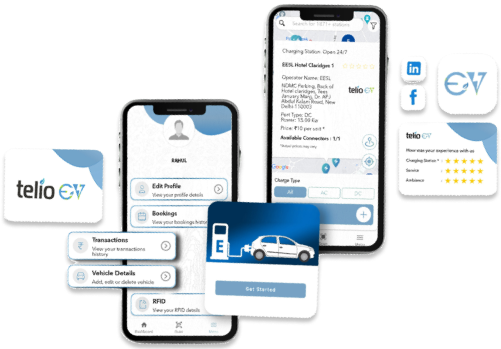Enhancing Electric Vehicle Charging with Advanced Management Software

The quick adoption of electric vehicles (EVs) has actually necessitated the development of efficient and user-friendly charging solutions. Central to this development are Electric Vehicle Charging Management Software (EV CMS) and EV Charging Apps, which improve the charging process for both operators and users.
Understanding EV Charging Management Software
EV Charging Management Software serves as a comprehensive platform that enables Charge Point Operators (CPOs) and other stakeholders to monitor, manage, and optimize EV charging stations. Key functionalities consist of real-time tracking of charging stations, user authentication, payment processing, and energy management. By incorporating these features, the software ensures effective operation and boosts the user experience.
Key Features of EV Charging Management Software
1. Real-Time Monitoring and Control: Operators can supervise the status of charging stations, track energy usage, and address issues promptly.
2. User Authentication and Access Control: The software manages user gain access to, making sure that only authorized individuals can utilize the charging centers.
3. Payment Processing: It assists in seamless transactions, supporting numerous payment techniques to cater to varied user choices.
4. Energy Management: By optimizing energy distribution, the software lowers operational expenses and supports grid stability.
5. Reporting and Analytics: Comprehensive information analysis help in informed decision-making and strategic preparation for network growth.
The Role of EV Charging Apps
EV Charging Apps are developed to provide EV owners with hassle-free access to charging facilities. These applications provide features such as finding nearby charging stations, real-time availability updates, navigation support, and remote monitoring of charging sessions. By boosting ease of access and user engagement, these apps play an essential function in promoting the adoption of electric vehicles.
Integration with Open Charge Point Interface (OCPI)
The Open Charge Point Interface (OCPI) is a standardized protocol that helps with interoperability between various EV charging networks. Integration with OCPI enables seamless roaming, allowing users to access several charging networks with a single account. This interoperability enhances user benefit and expands the ease of access of charging infrastructure.
Benefits of Implementing Advanced Charging Solutions
- Enhanced User Experience: User-friendly user interfaces and trustworthy services increase customer complete satisfaction and loyalty.
- Operational Efficiency: Automation and real-time monitoring lower manual intervention, reducing functional costs.
- Scalability: Advanced software solutions support the growth of charging networks to fulfill growing demand.
- Revenue Generation: Flexible prices models and effective payment processing open new income streams for operators.
Conclusion
The combination of EV Charging Management Software and user-centric EV Charging Apps is pivotal ahead of time the electric vehicle environment. These technologies not just simplify operations for service providers but likewise substantially enhance the charging experience for users. As the EV market continues to grow, the adoption of such sophisticated solutions Electric Vehicle Charging App will contribute in meeting the increasing demand for effective and available charging infrastructure.